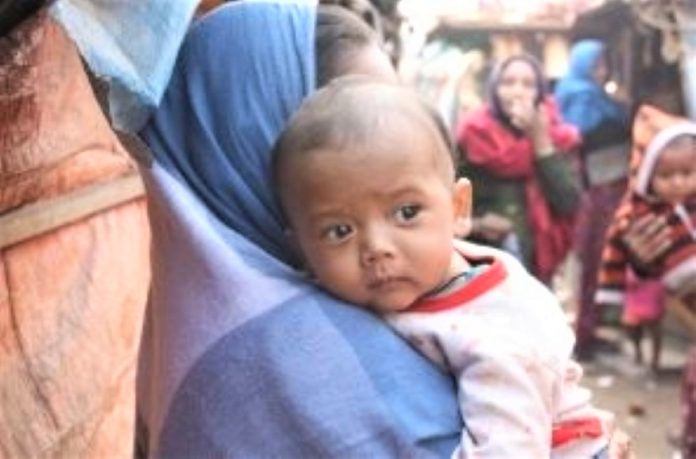Guest contributor
Shalini Perumal
The Rohingya are considered one of the most persecuted minorities in the world by the U.N. Over 700,000 Rohingyas fled a 2017 military clearance operation in their homeland of Rakhine State to neighboring Bangladesh. Thousands were killed, tortured and raped by Burma Army troops. The U.N. called it “a textbook example of ethnic cleansing” and “acts of genocide.” The Gambia opened a genocide case against Burma at the International Court of Justice (ICJ) in 2019. The U.S. government labeled the Rohingya persecution in Burma a genocide in 2022.
Bangladesh hosts nearly one million Rohingya in refugee camps in Cox’s Bazar, located in the southeast of the country, near the Burma border. Human Rights Watch states that around 40,000 Rohingya have made it as far as India, where they also live as refugees and asylum seekers but aren’t recognized as such by India’s government (it never signed The 1951 U.N. Refugee Convention nor the 1961 Protocol). Some Rohingya families have settled in the capital, New Delhi, while others live in makeshift homes in the states of Uttar Pradesh, Haryana, and Kashmir. Many have settled at Kalindi Kunj, located near the banks of the Yamuna River which separates Delhi from Uttar Pradesh.
*Haleema Mohammad, 35, lives in Kalindi Kunj. She lost her father, mother and husband in 2017. Haleema said they were all tortured and killed by the Burma Army. She escaped in 2018 with her two daughters, aged 9 and 12. She makes a living for her family by working as a garbage dealer, a profession that yields just enough money to keep her children fed. Haleema’s daughters are small for their age due to severe malnourishment. She is constantly worried about their safety. Despite her concerns, when asked if she would like to return to Myanmar, Haleema responds that it’s a recurring nightmare. “This is [our] family home now,” she said, pointing to her surroundings at Kalindi Kunj.
More than 1,000 Rohingya settled in Delhi in 2012 after intercommunal violence broke out between Rakhine Buddhists and Rohingya Muslims in Rakhine State. At Kalindi Kunj, over 75 Rohingya families live in makeshift shelters on land provided by the Zakat Foundation, a non-governmental organization. A fire broke out here twice, in 2018 and 2021, causing damage to makeshift homes. Access to potable drinking water is difficult to find and, furthermore, Rohingya women fear gender-based violence and rape as there are no facilities that allow them to have privacy. Kalindi Kunj is known for its many dangerous snakes during the rainy season. During the winter season the north of India is known for its cold winds. Many at Kalindi Kunj burn garbage so they can have fire to keep themselves warm.
Many Rohingyas staying in India struggle to receive assistance from the U.N. High Commissioner for Refugees (UNHCR). Although it is much easier now than it was five years ago, when Haleema arrived. About 20,000 UNHCR cards have been distributed to Rohingya refugees, according to HRW. India’s government continues to refuse to officially recognize the Rohingya at Kalindi Kunj as refugees. On June 20, known as World Refugee Day, many asylum seekers and refugees from Myanmar staying in India protested in front of the UNHCR headquarters in New Delhi. They demand laws be enacted by India’s government outlining the issuance of long-term visas to permit refugees to be allowed to work legally.
For Rohingya in India, the situation is even more dire than for those in neighbouring Bangladesh. India’s treatment of its Muslim communities is a major concern for the Rohingya, because they aren’t citizens and can’t rely on the rule of law to protect them from facing further human rights violations. Kalindi Kunj is located in a rapidly industrializing area. Rohingya fear their makeshift homes will be bulldozed, and that they will be displaced once again.
Over several decades, Rohingyas have suffered from persecution and displacement both inside and outside of Myanmar. With no hope to return, many Rohingya like Haleema carry the nightmare of terror perpetrated against them by the military and local vigilantes. She has little hope for the future. Even though India does not offer her family the long-term stability, or a pathway for resettlement to a third country. Haleema said she feels safe here, and that’s a big change from her life back home, in Myanmar.
*name changed to protect identity



